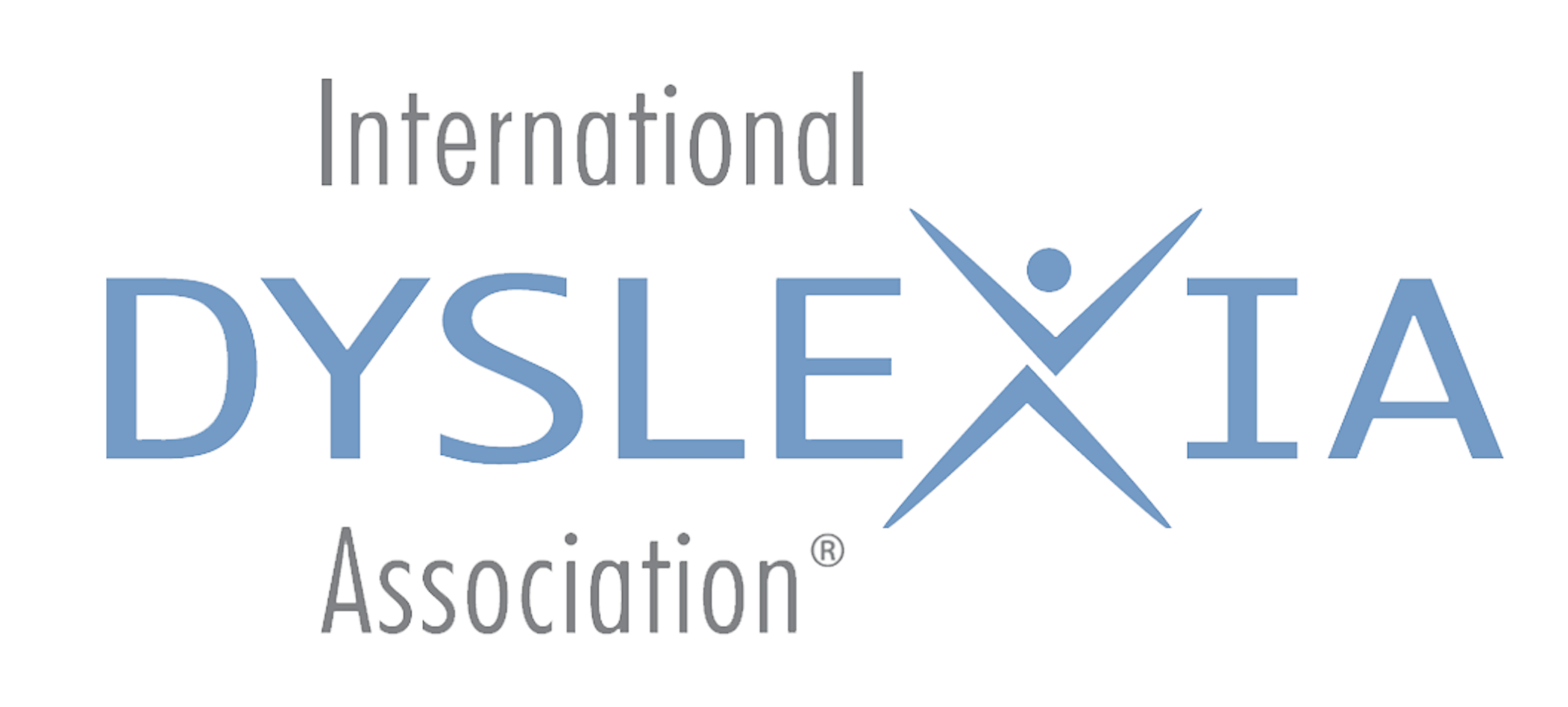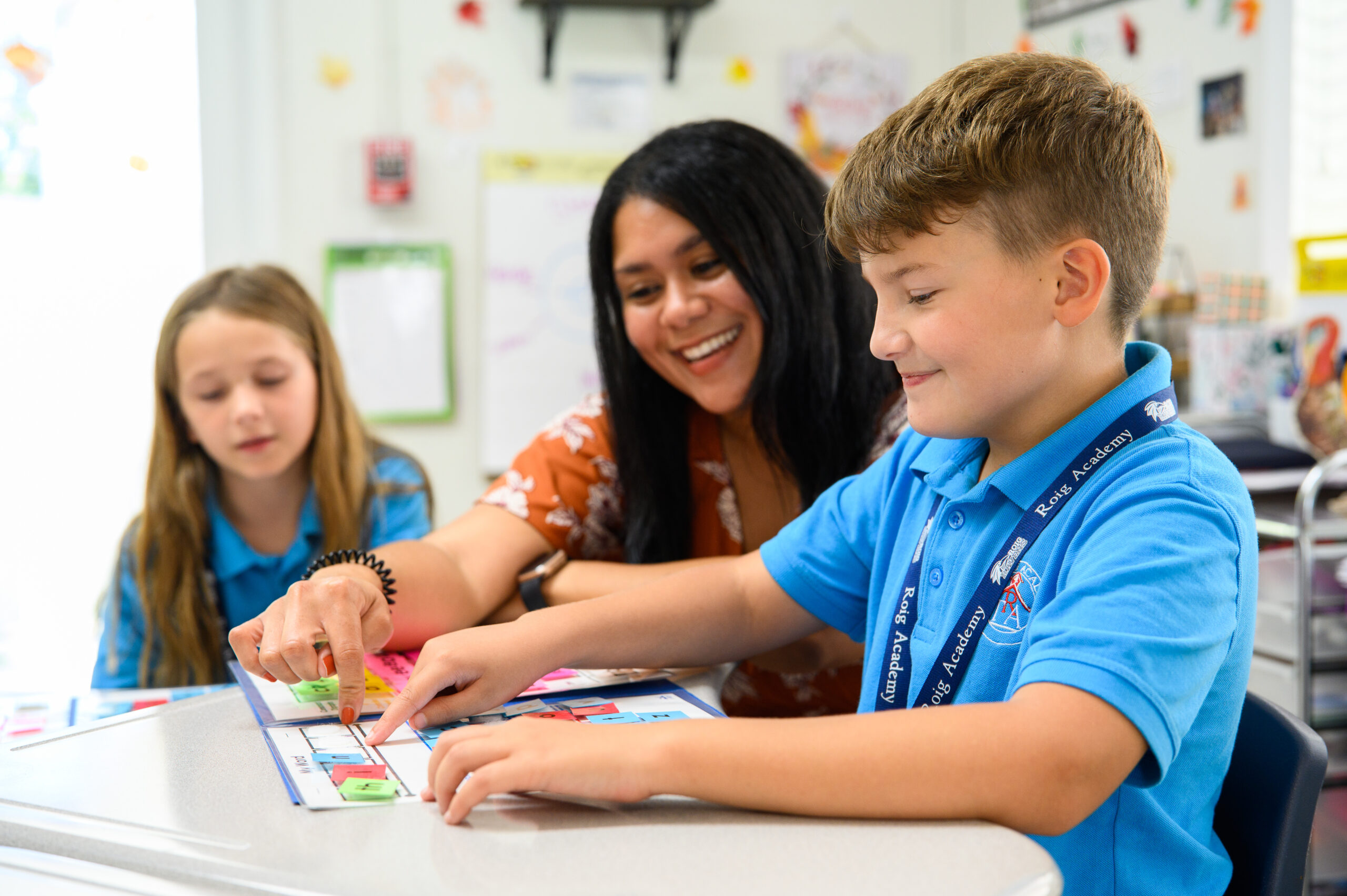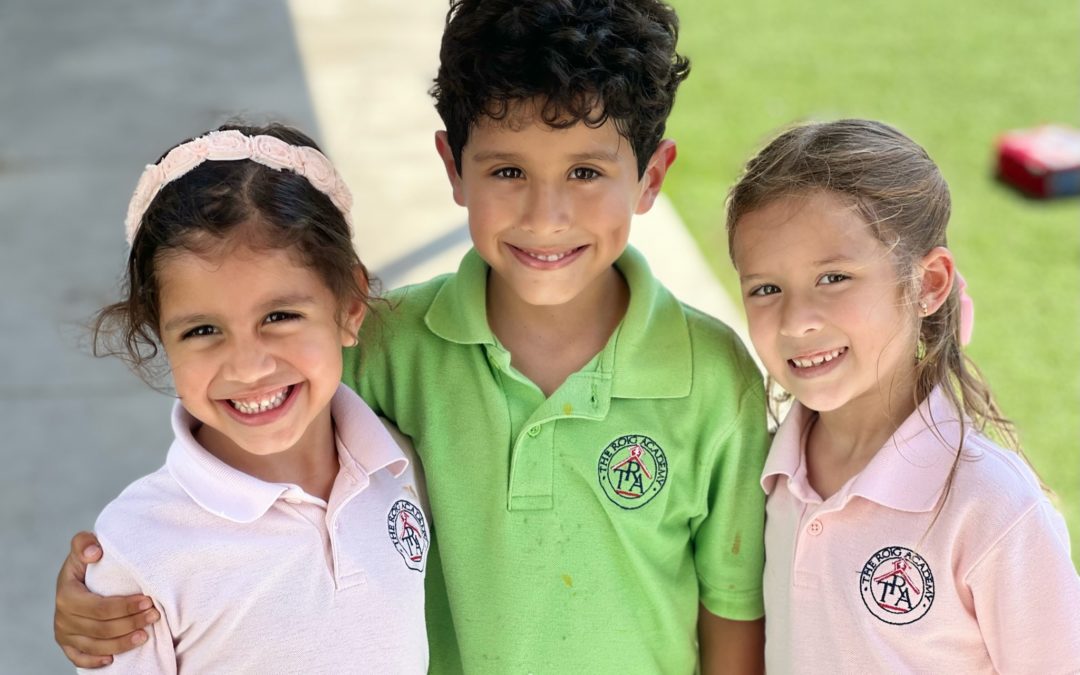Language Delays
Inquire TodayWhy The Roig?
We understand that children with learning differences, such as Dyslexia and Dyscalculia, require teaching styles and methodologies that are not found in a typical classroom.The Roig Academy is among a specialized independent network of schools throughout the world that are designed for students with learning differences.

The Roig Academy is among a specialized independent network of schools throughout the world that are designed for students with learning differences.
Private School For Language Delays
Educators at The Roig Academy have a thorough understanding of the learning differences that each of its students may be diagnosed with.

What are Language Delays?
Language delays refer to a significant lag in a child’s ability to understand or use language compared to their peers. This can encompass both receptive language (understanding what is being said) and expressive language (ability to express thoughts and feelings). Research indicates that as many as 40-75% of children with specific language impairments will have problems learning to read, highlighting the strong link between language delays and reading difficulties. At The Roig Academy, our private school for students with learning delays in Miami, we understand the profound impact language delays can have on reading skills. That’s why we utilize a tailored, multi-sensory approach to instruction, ensuring that each student’s unique needs are met. By employing the latest research-based teaching strategies, we effectively support our students’ language development and reading abilities.

How Do I Know if My Child May Have Language Delays?
A comprehensive evaluation by a speech-language pathologist or a psychoeducational professional is recommended if your child shows signs of language delays. If your child is diagnosed with a language delay or is struggling in a traditional classroom setting, consider enrolling them at The Roig Academy. Our school specializes in addressing learning differences and providing the necessary support for your child’s success.
What are the signs and symptoms of Language Delays
Some of the signs and symptoms that might indicate language delays include:
-
Receptive Language:
- Difficulty following directions or understanding questions.
- Trouble grasping the meaning of words and sentences.
- Difficulty with comprehension in comparison to peers.
-
Expressive Language:
- Limited vocabulary for their age.
- Difficulty forming sentences.
- Frequent use of generic words like “thing” or “stuff” instead of specific names.
- Trouble narrating events or telling stories.
- Inconsistent grammar use.
-
Social Communication:
- Difficulty engaging in conversations.
- Problems with initiating or maintaining social interactions.
- Difficulty understanding and using non-verbal communication cues.
How does a language delay impact reading?
Untreated speech delays can significantly impact a child’s school performance, particularly affecting their phonemic awareness, the ability to recognize and interpret sounds within words. This can hinder their ability to sound out words while reading, diverting cognitive resources from comprehension. Additionally, speech and language delays can lead to a smaller vocabulary, further affecting reading comprehension and general communication skills. Children with undiagnosed or untreated speech or language disorders often struggle with instructions, leading to mislabeling as disobedient. Early intervention is crucial for addressing various speech and language delays, including cognitive-communication disorders, articulation and speech sound disorders, language disorders, voice disorders, and stuttering. With appropriate support, children can overcome these challenges and achieve academic success.
What are the signs and symptoms of language delays in Kindergarteners?
- Difficulty understanding simple stories or directions.
- Limited sentence structure and vocabulary.
- Problems with word recall.
- Difficulty learning new words and concepts.
- Struggles with basic social interactions and play.
A Quick Glance at The Roig Academy Admissions Process
The Roig Academy is committed to providing a nurturing and customized educational environment for students with language delays. Our admissions process ensures that we understand and meet each student’s unique needs, helping them reach their full potential. Below is a quick glance at The Roig Academy admissions process for prospective families.

Step 1: Diagnosed
Diagnosed or suspected dyslexia or a language-based learning disability. Displaying average to high average intelligence.
The applicant must be free from a diagnosis of intellectual, behavioral or emotional disorder and autism. As The Roig Academy is not specialized to support these diagnoses.
Step 2: Inquire
Inquire at The Roig Academy and complete our parent inquiry form.
Step 3: Testing
Submit current psychoeducational testing to The Roig Academy.
(displaying average to above-average intelligence)
Step 4: Interviews
Family and student interviews are conducted.
Step 5: Tours
Family tour of The Roig Academy Campus.
Step 6: Evaluations
School evaluation and placement testing.
Step 7: Enrollment
Welcome to The Roig Academy Family!
Ready to Start the Admissions Process at The Roig Academy?
At The Roig Academy, we believe in supporting not just the student but the entire family. Our admissions process is designed to provide a comprehensive understanding of how we can support your child’s unique learning needs and help them thrive. We welcome applications year-round and are dedicated to finding the best educational fit for each applicant. Throughout this process, we take the time to learn about your child’s potential, strengths, and areas of concern. Should you have any questions regarding this process, please contact admissions at 305-235-1313




